Infamous Non-Drug-Related Scandals
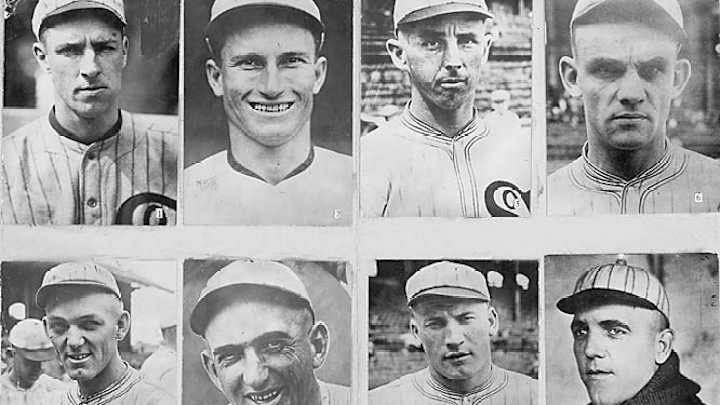
Infamous Non-Drug-Related Scandals
Black Sox scandal, 1919

When eight Chicago White Sox players were implicated in throwing the World Series against the Reds, it shook the sporting world as nothing had before. Though the guilt or innocence of the players is still debated (did Shoeless Joe Jackson play well anyway? Should Buck Weaver have been barred from the game?), the Black Sox scandal stained baseball's reputation and ruined the game for many. <br><br>Send comments to siwriters@simail.com.
Diego Maradona's World Cup goal, 1986
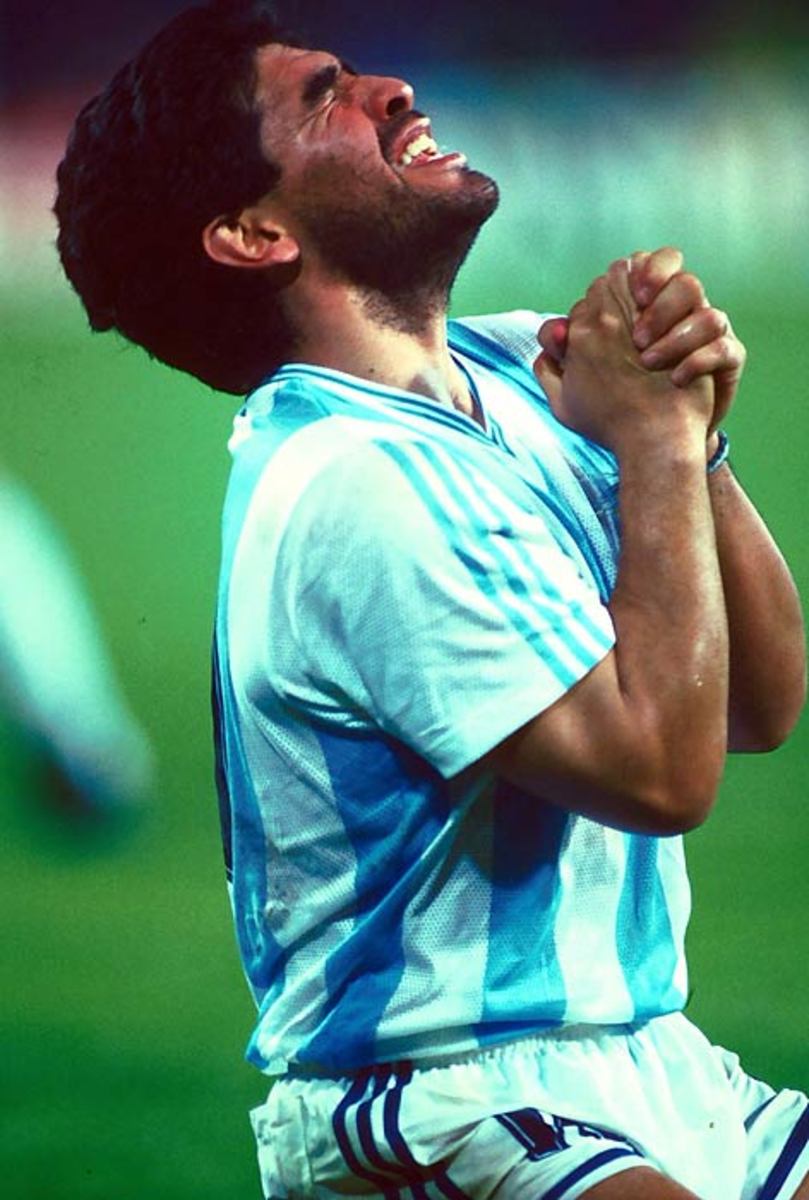
Six minutes into the second half of the quarterfinals of the 1986 World Cup, Argentine superstar Diego Maradona scored a goal ... with his left fist. The referee did not see the infringement, and the goal stood, despite protests from the English team. Argentina won the game 2-1 and eventually the World Cup. A few months later Maradona admitted the goal had been scored by his hand and not the "hand of God," his original claim.
College basketball point-shaving scandal, late-1940s and early-50s
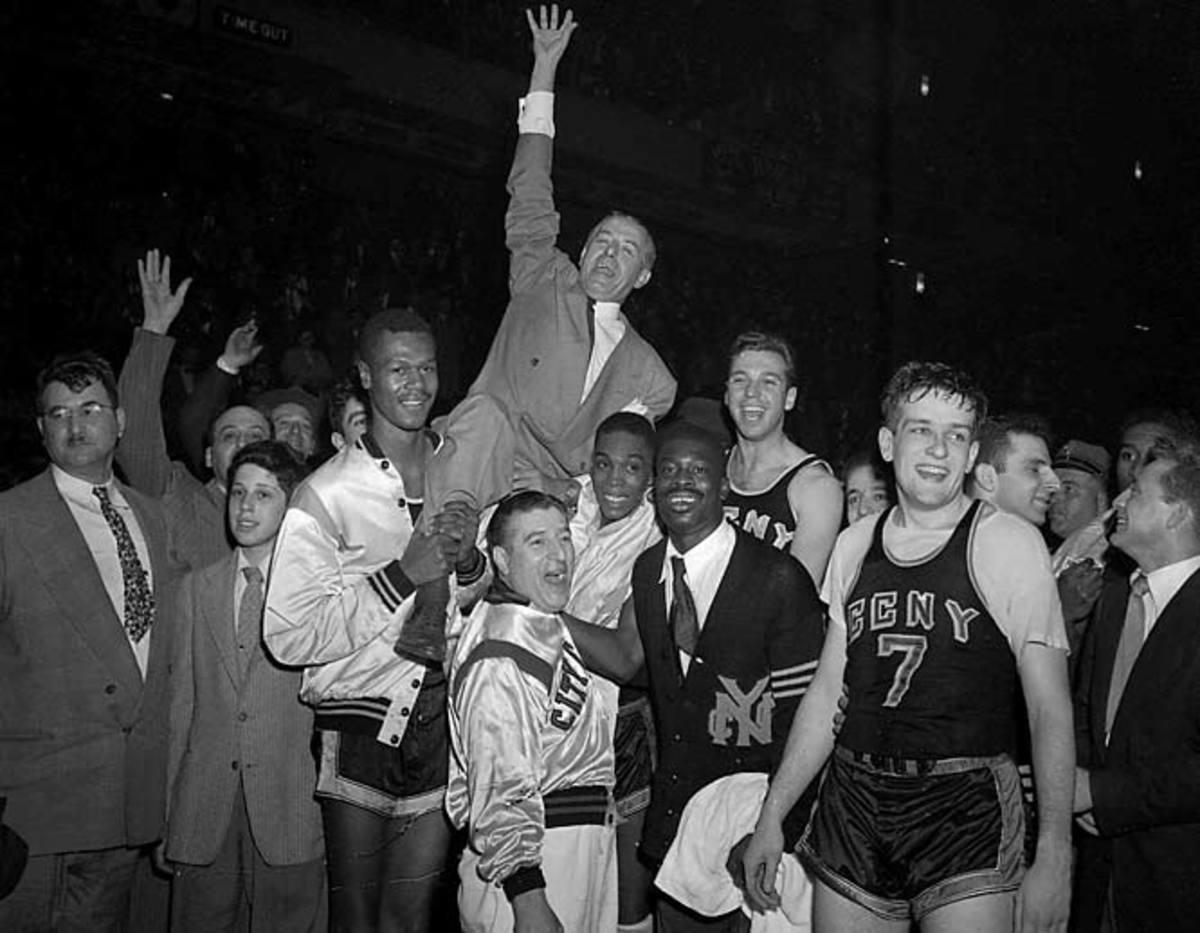
After five Brooklyn College players admitted to accepting bribes to ensure a loss to Akron in 1945, point-shaving was initially regarded as an isolated incident. By 1951, it had spread to CCNY, upset winner of the 1950 NCAA title, and to Kentucky, the country's most storied program. By the mid-1950s, the Manhattan D.A. had implicated 32 players from seven schools who had accepted payoffs from gamblers to make sure their teams did not cover the point spread. Investigators discovered 86 games that had been fixed from 1947-50.
Tonya Harding-Nancy Kerrigan saga, 1994
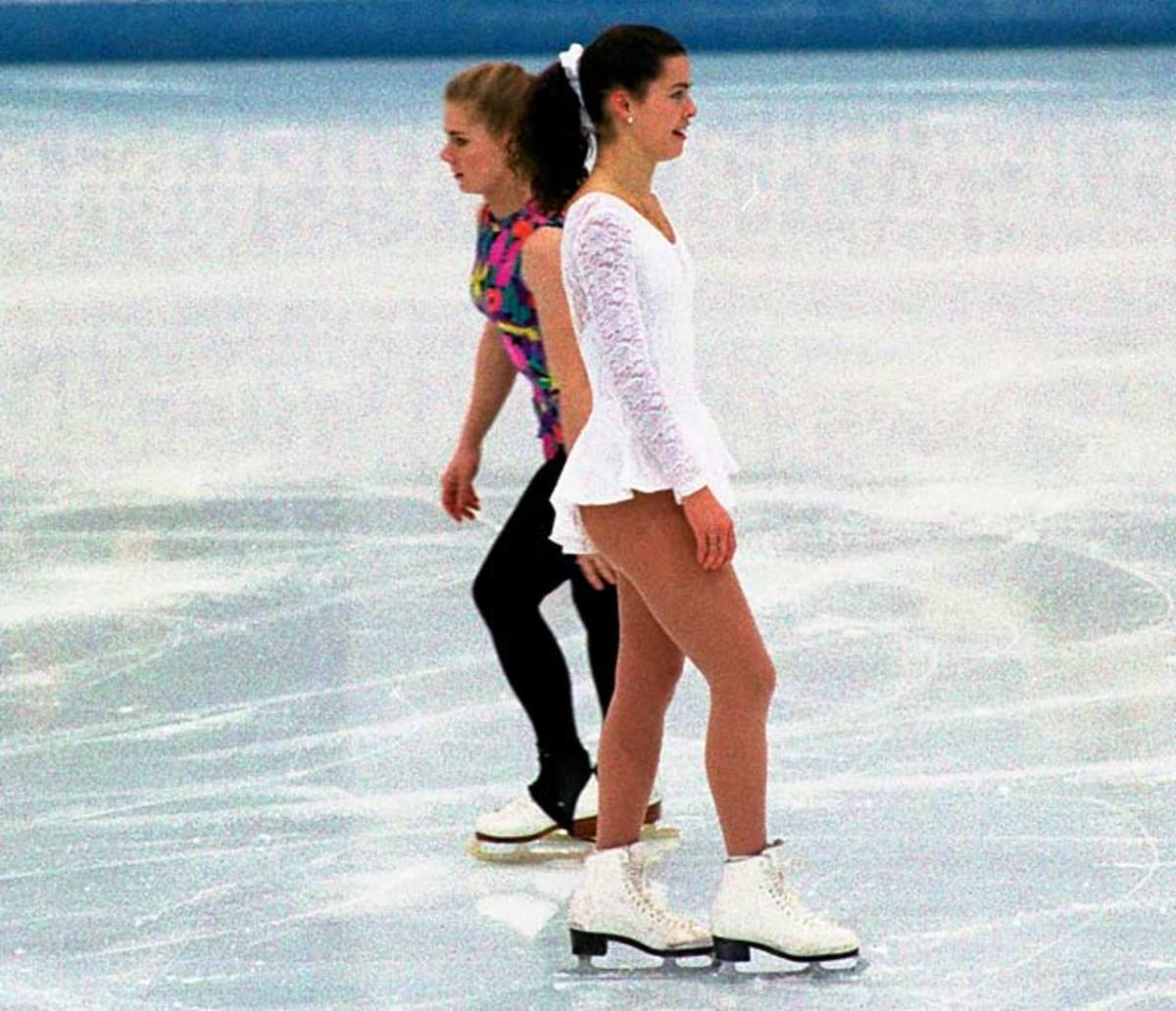
Wanting her competition out of the way in the Olympics, Harding conspired with ex-husband Jeff Gillooly and his hired henchman, Shane Stant. Stant clubbed Kerrigan on the knee with a metal baton on Jan. 6, 1994, during a practice session at the U.S. Figure Skating Olympic trials. Kerrigan was forced to withdraw from the competition, but was waived onto the team. Harding, who placed first at the trials, placed eighth at Lillehammer amid a swirl of controversy before eventually admitting she hindered the prosecution of those involved in the attack. She was later banned for life by the U.S. Figure Skating Association.
Pete Rose bets on baseball
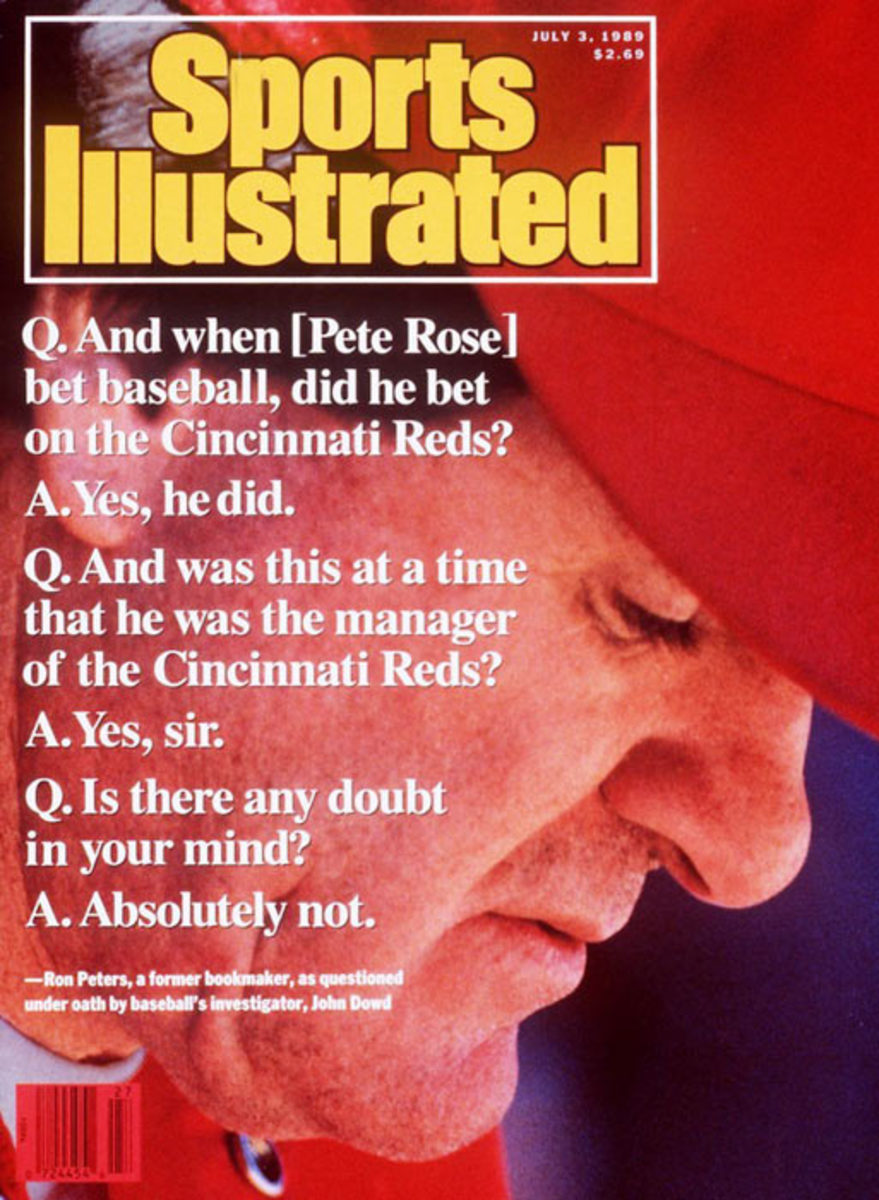
Baseball's all-time hit king was banished from the game for betting on baseball and denied wrongdoing for years. Though Rose maintains he never bet against the Reds, he broke baseball's cardinal rule and sacrificed the integrity of the sport. For that he is permanently ineligible for a return to baseball or the Hall of Fame.
Tim Donaghy
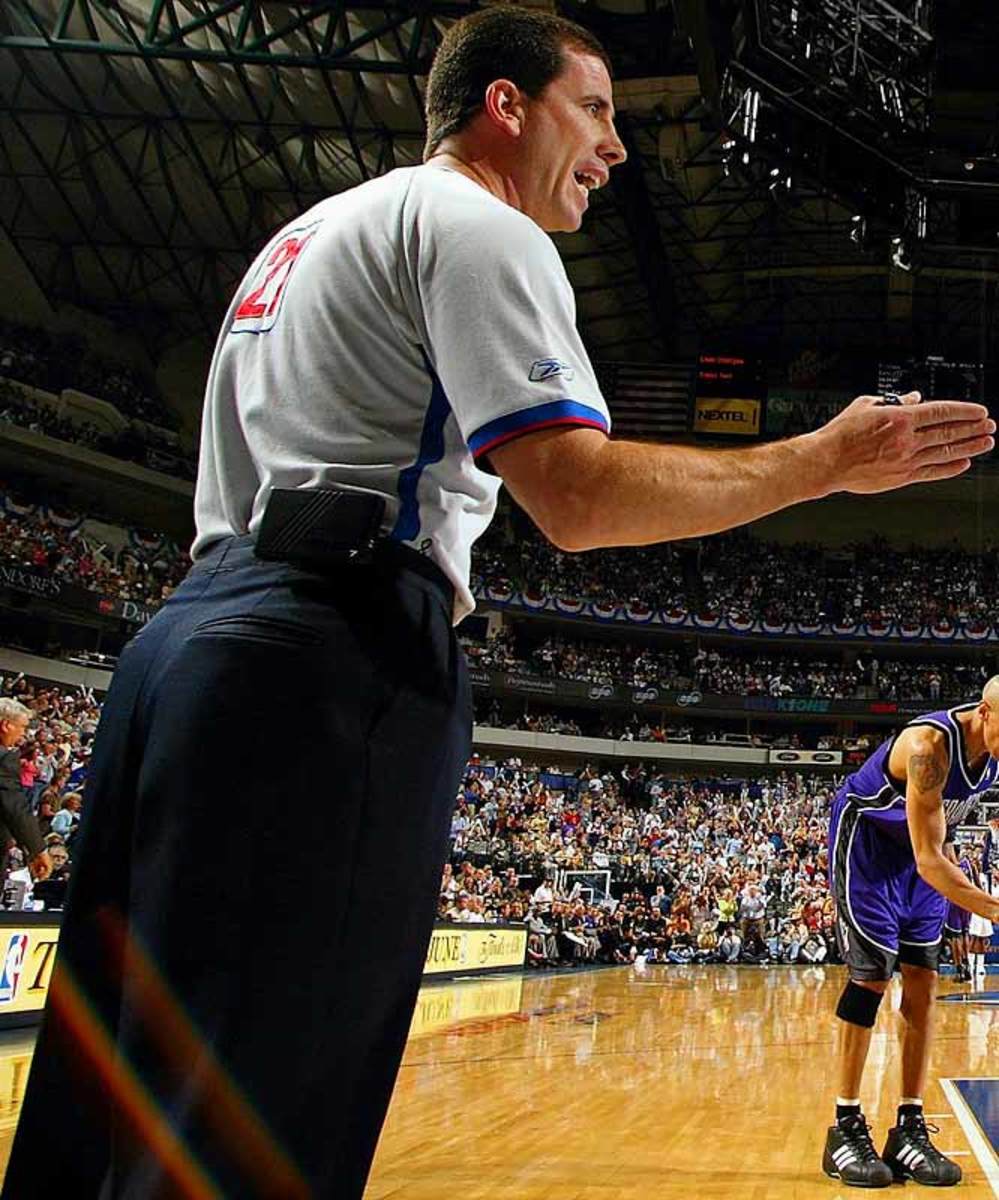
Donaghy shook the NBA to its core when the FBI revealed to the league that it was investigating the 13-year veteran official for betting on games he worked and providing information to others, reportedly linked to organized crime. Though Donaghy had yet to turn himself over to federal authorities as of this writing, it is widely expected that he will provide information about his activities and with whom he possibly conspired, a possibility that has left the NBA fearful that other officials, players or personnel also could be involved. With the implications of the investigation still unfolding, league commissioner David Stern stated the developing scandal was "the most serious situation and worst situation that I have ever experienced, either as a fan of the NBA, a lawyer for the NBA or a commissioner of the NBA.
The Danny Almonte age scandal, 2001
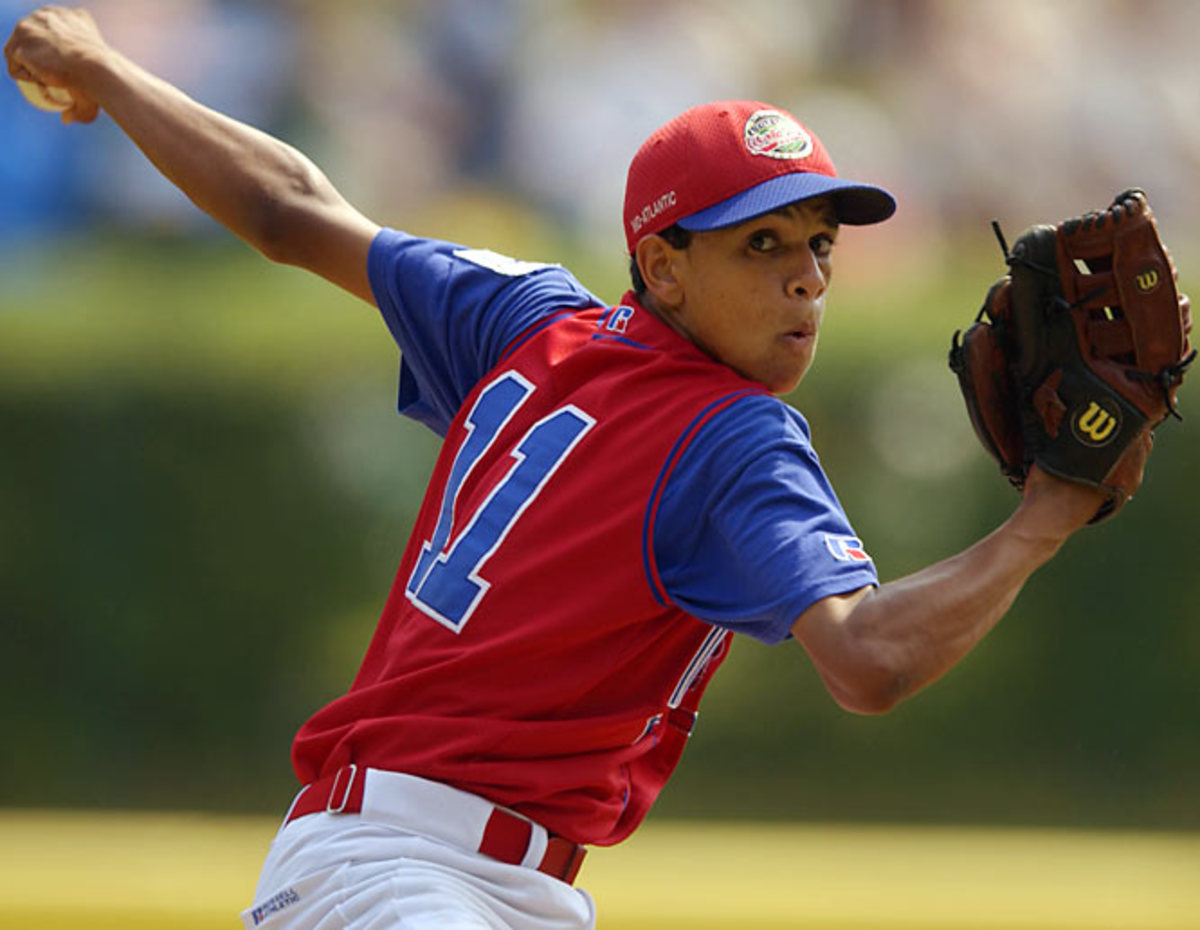
Almonte led the Rolando Paulino All-Stars to the Little League World Series, where he pitched a perfect game in leading his team to a third-place finish. However, scandal tainted the world of youth sports when the team was stripped of all victories that year and its third-place Little League World Serise finish after it was proven Almonte was actually 14, two years older than the Little League age limit.
Rosie Ruiz's Boston marathon win, 1980
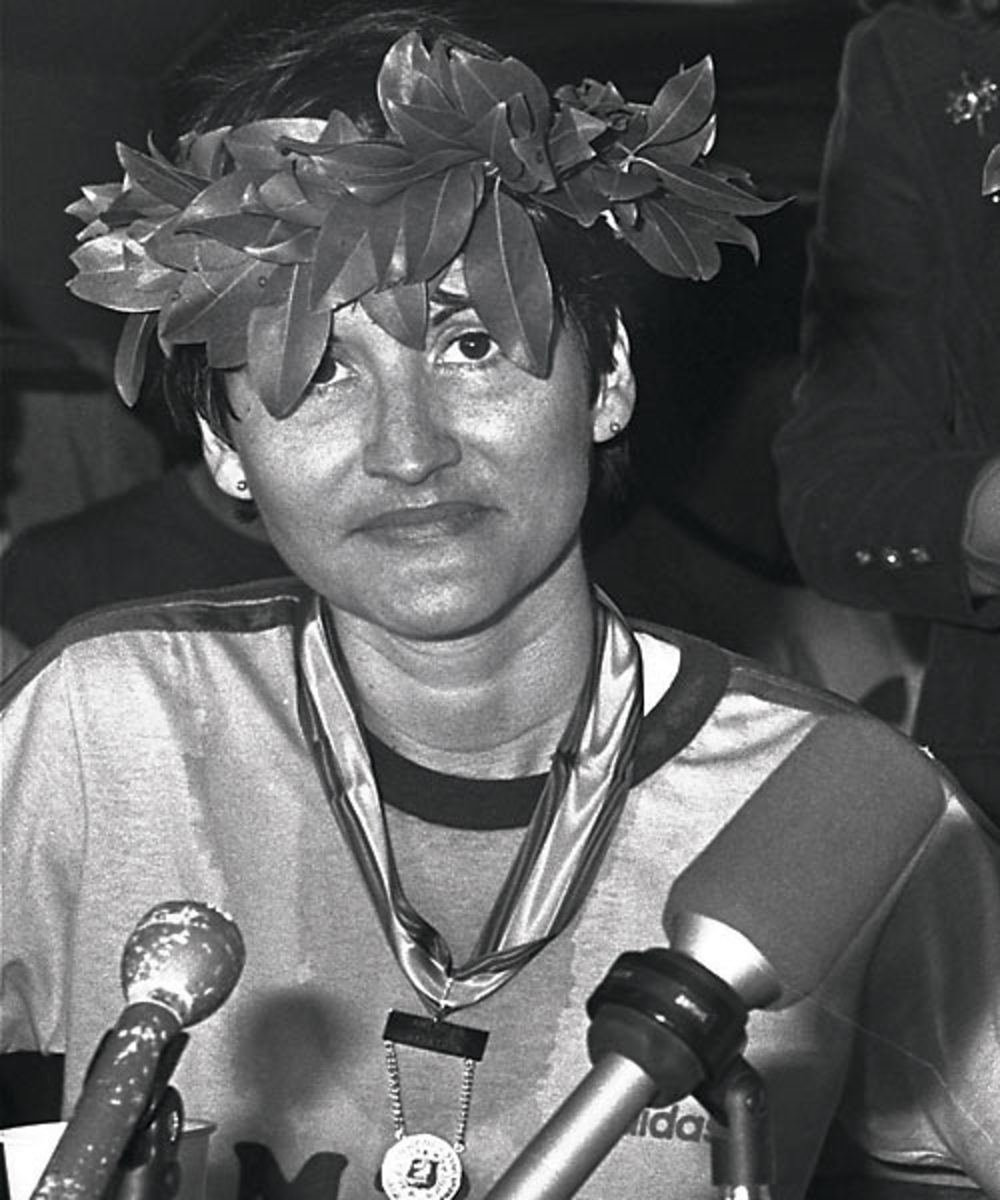
Ruiz reached the finish line of the 1980 Boston Marathon first, and did so without a sweat, after entering the race in the final half-mile. She was eventually stripped of her title. Ruiz earned her spot in the race by posting a terrific time in the New York Marathon, in which she reportedly rode the subway for much of the race.
Canadian and Russian figure skating pairs share gold, 2002
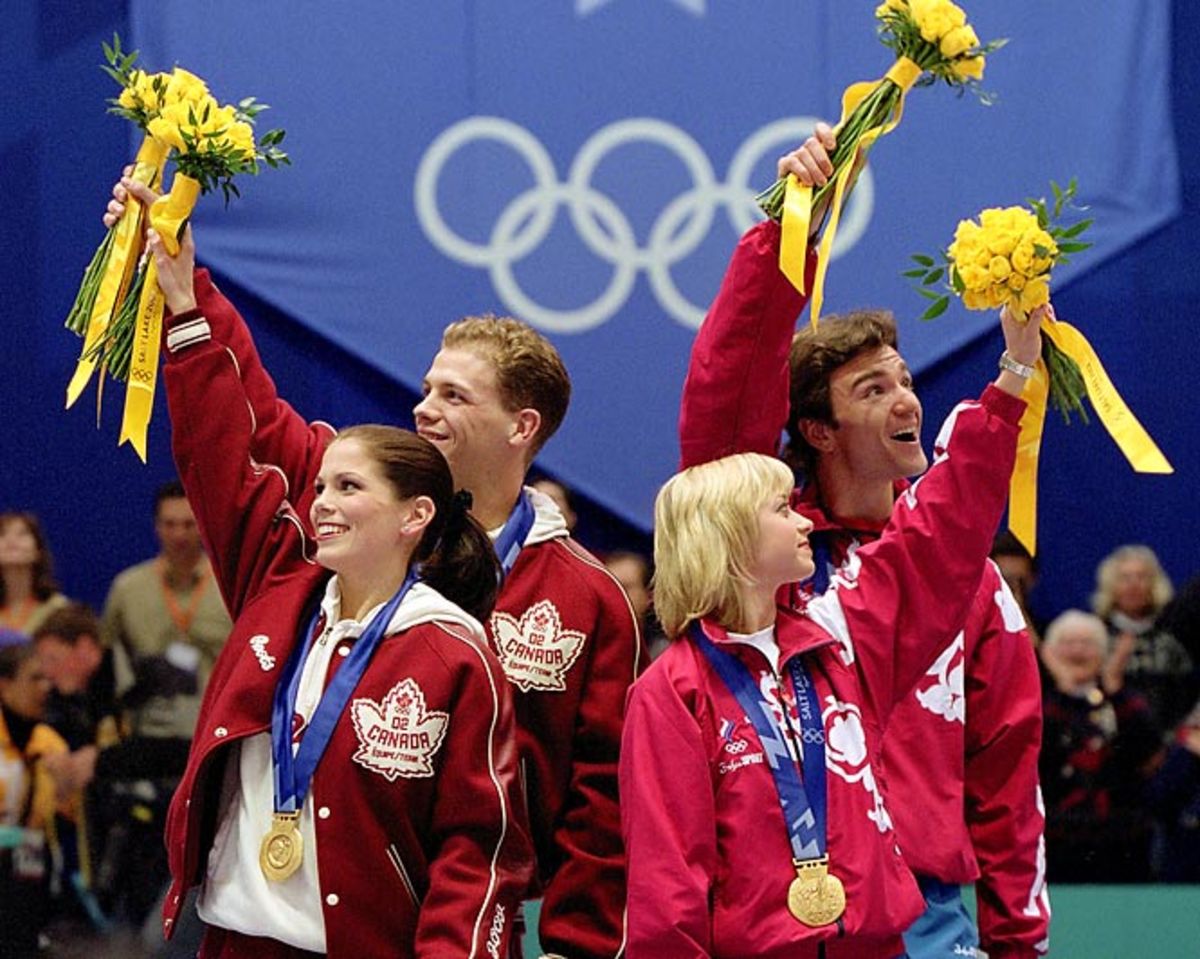
An alleged vote-trading scheme between the Russian and French officials was uncovered at the 2002 Salt Lake City Winter Olympics after Russians Elena Berezhnaya and Anton Sikharulidze won gold, though many experts said Canadians Jamie Salé and David Pelletier skated better. The International Olympic Committee awarded a second gold medal to the Canadian pair after French judge Marie-Reine Le Gougne disclosed that the French federation pressured her to put the Russians first. Both Le Gougne and French ice federation president Didier Gailhaguet were suspended for three years and banned from the '06 games.
Minnesota basketball academic scandal, 1990s
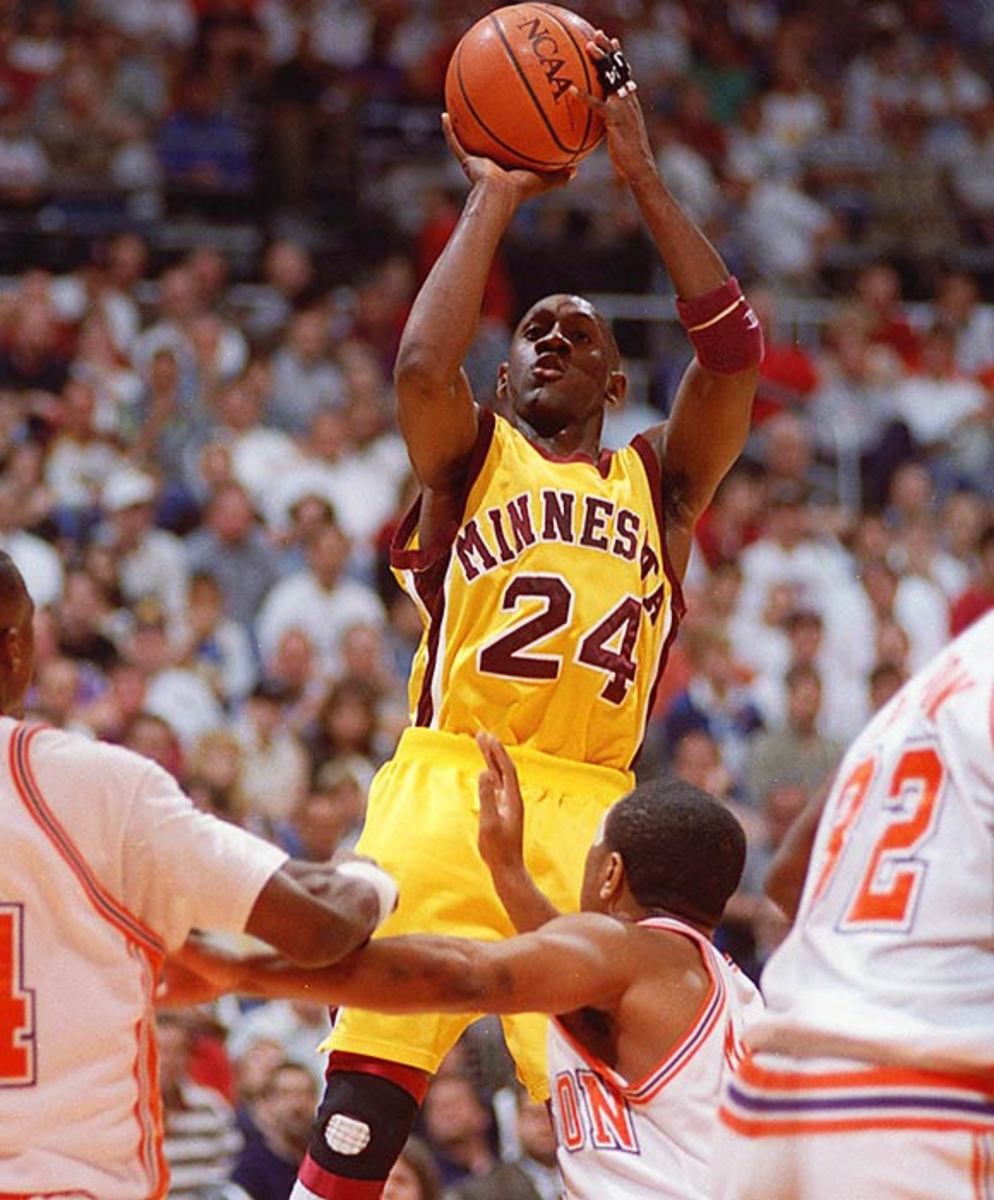
Minnesota's basketball program committed academic fraud for years under former-coach Clem Haskins. Haskins accepted a $1.5 million buyout in June of 1999 and the university faced a four-year probation and had to vacate its postseason records from the 1993-98 as well as any individual or team honors won during that time.
New York Giants elaborate sign-stealing system, 1951
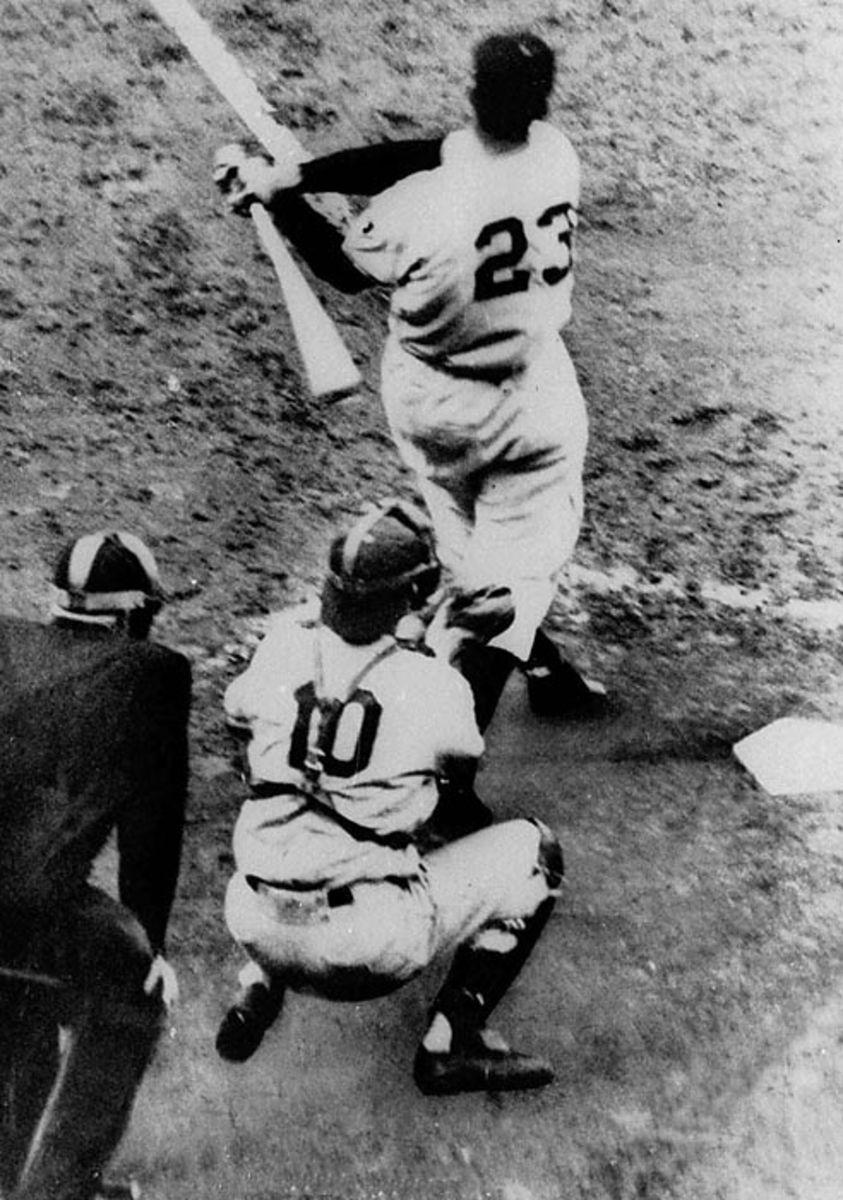
In 2001, the Wall Street Journal quoted players from the 1951 pennant-winning team saying they stole catchers' signs to overcome a 13 1/2-game deficit. Coach Herman Franks would identify the sign from the center field-clubhouse and set off a buzzer to identify the next pitch. A relay man would then signal the hitter with what to expect, and the rest, as they say, is history.
SMU football gets the "death penalty", 1987
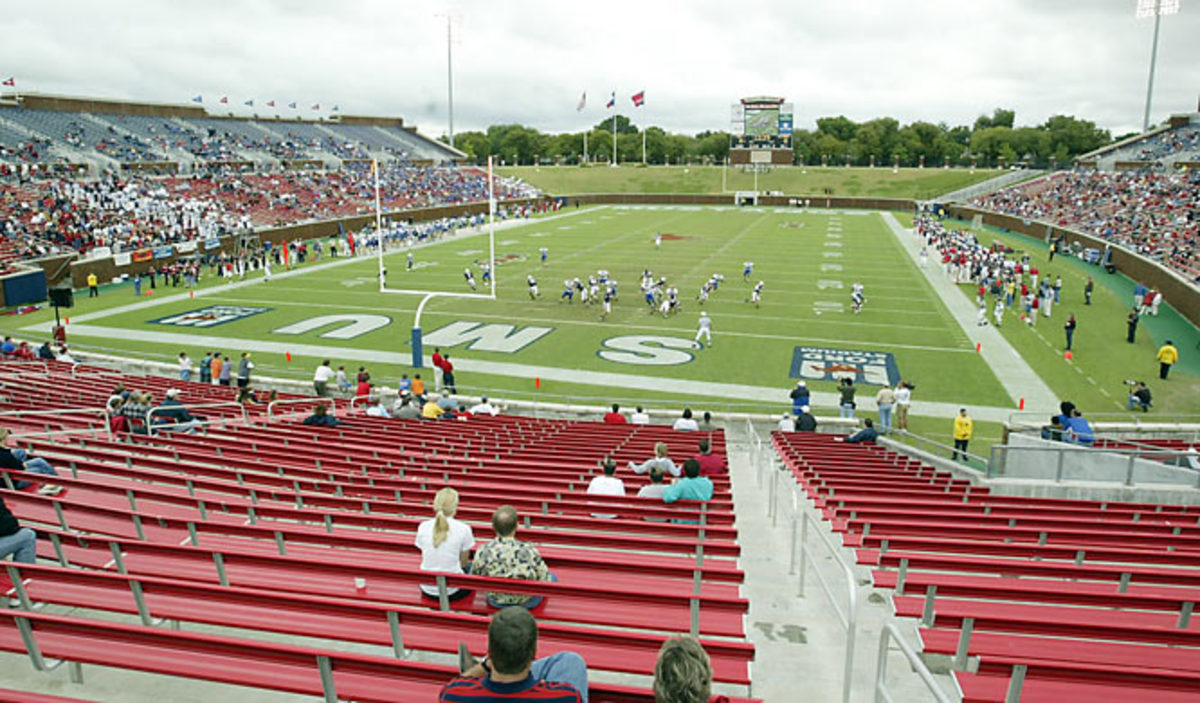
Feb. 25, 1987 is the day the NCAA came in and shut down the SMU football program after a series of major violations, including a sophisticated scheme that saw boosters paying players thousands of dollars. A previous perennial powerhouse, SMU did not resume football until 1989 and the program has never recovered from its "death penalty."
Spain's Paralympics basketball team, 2000
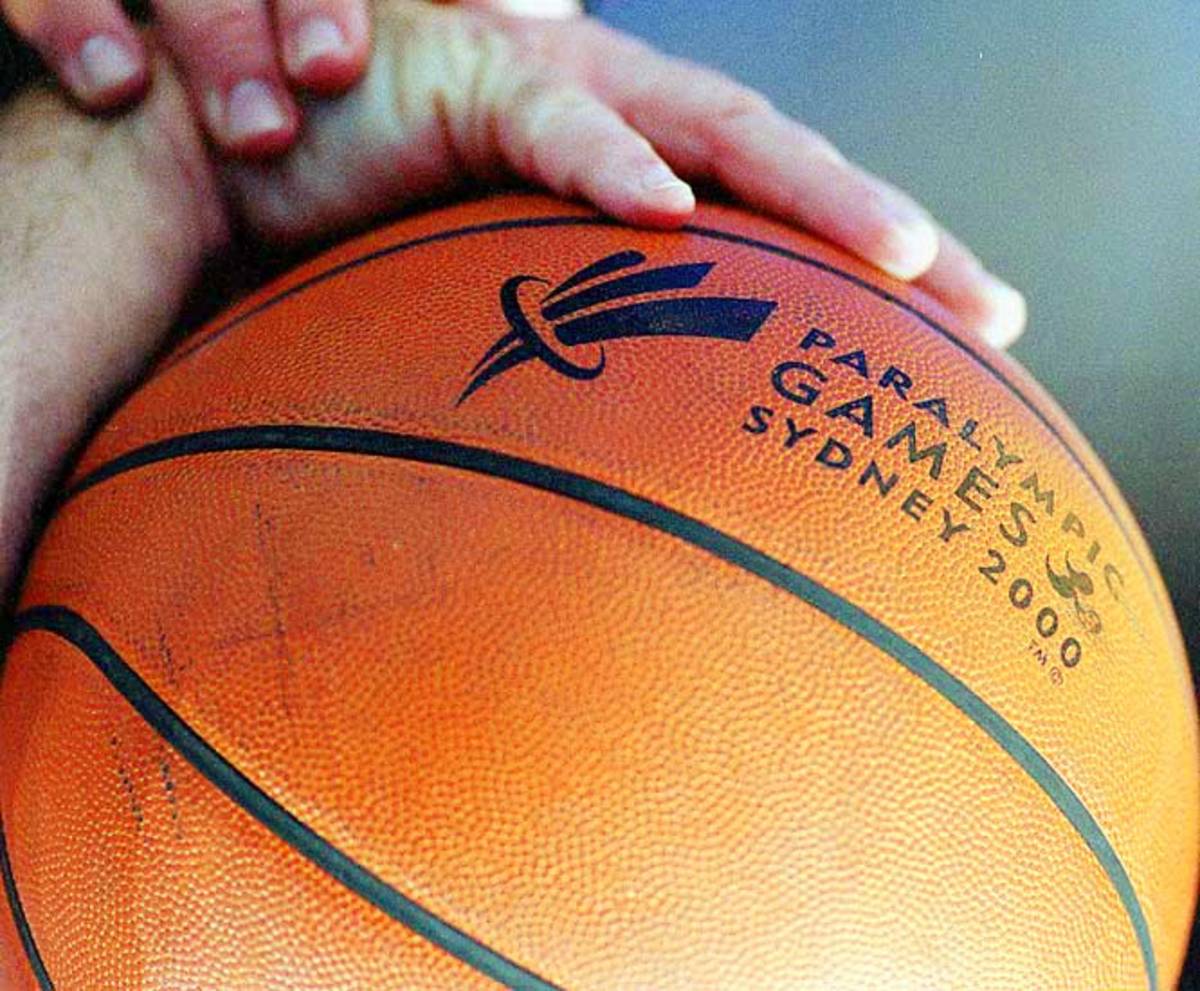
A few weeks after the Spanish basketball team won the gold at the 2000 Paralympics, team member Carlos Ribagorda sent his medal and team spending money back to the Paralympics headquarters. Why? He was one of 10 members of the 12-person squad who had no intellectual disability.
Sammy Sosa's corked bat, 2003
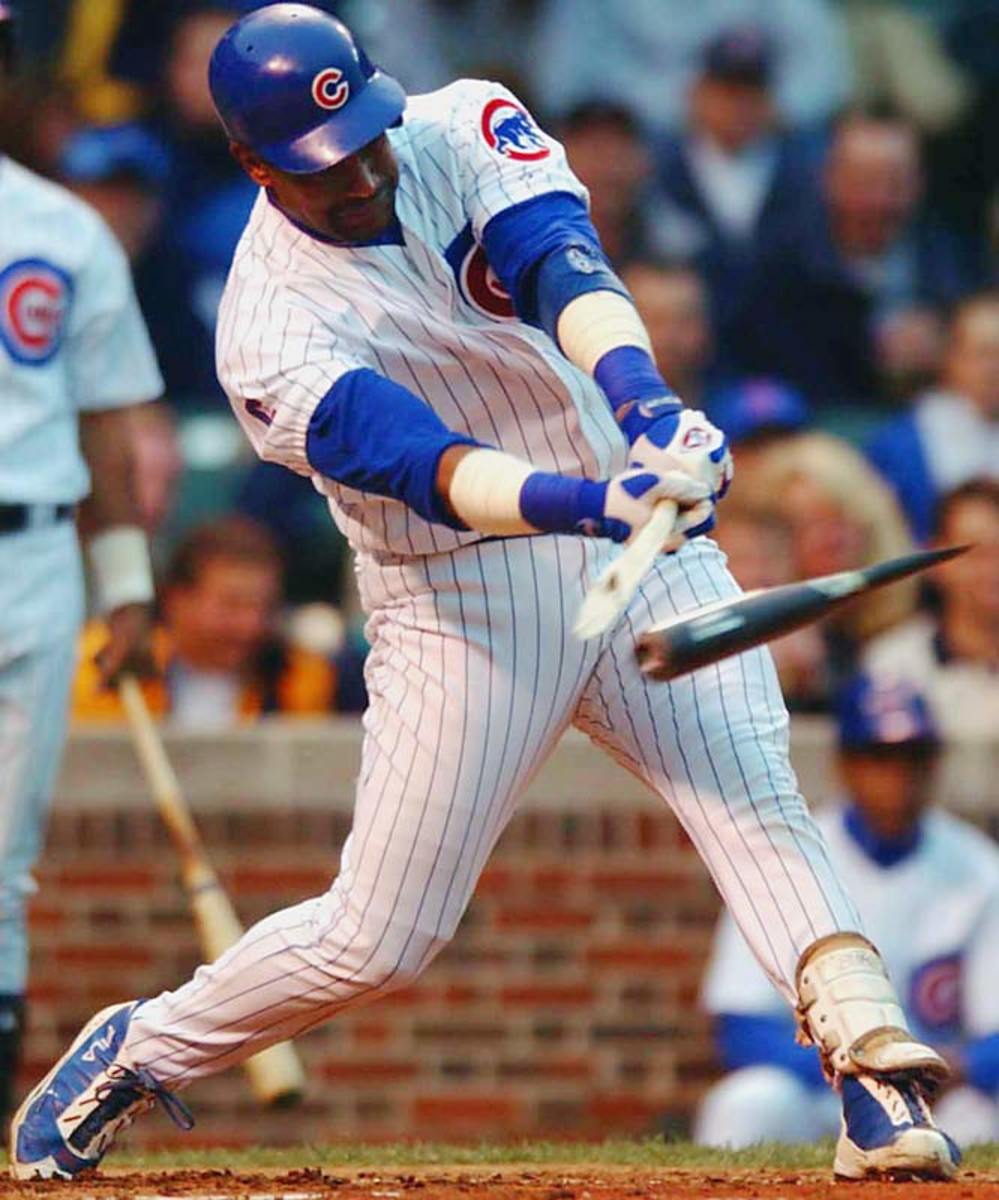
Sosa's bat exploded against the Devil Rays in 2003, and with it, so too did his reputation. He served a seven-game suspension for using a corked bat, though he maintained he had mistakenly taken his batting practice/exhibition bat to the plate. Some of Sosa's bats at the Hall of Fame were x-rayed and did not contain cork.
The IOC strips Jim Thorpe of his Olympic medals, 1912
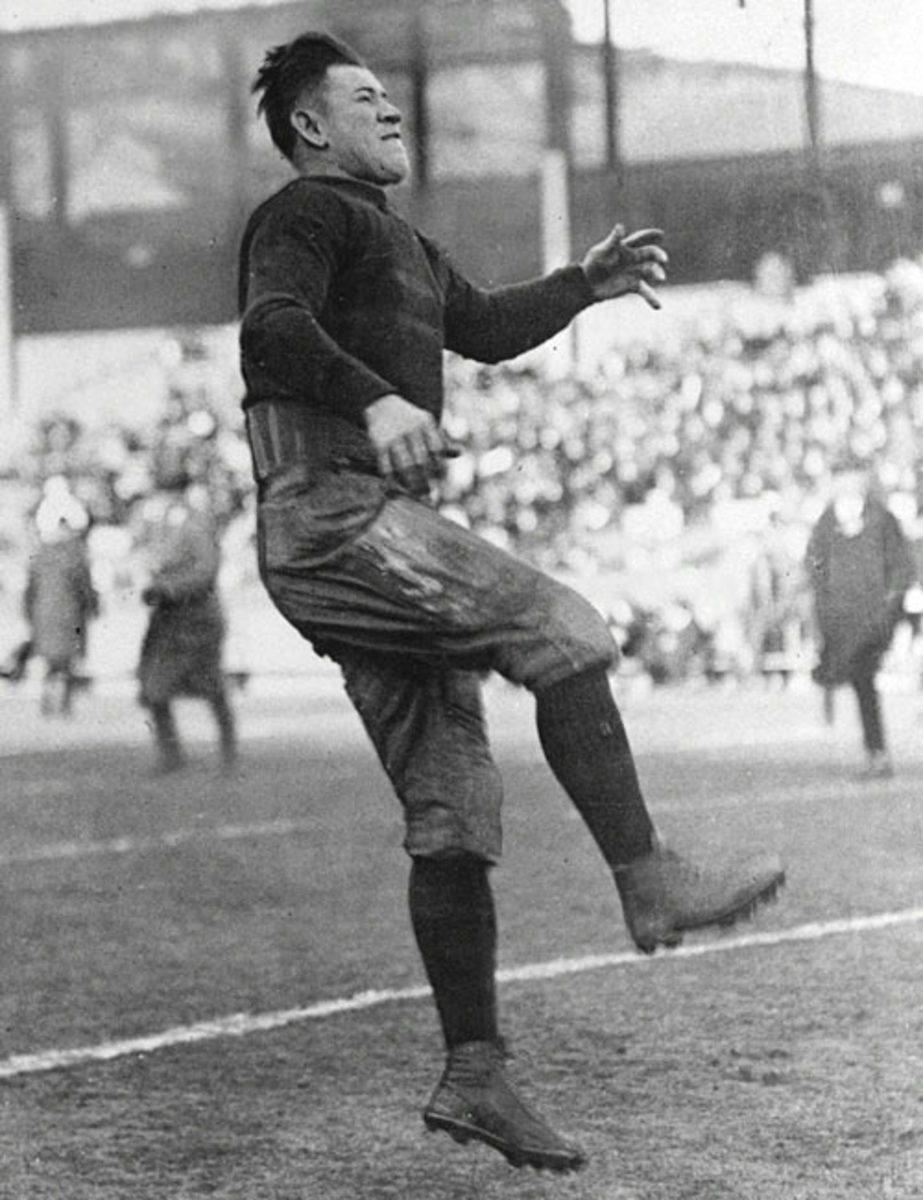
Thorpe won gold medals in the decathlon and pentathlon at the 1912 Olympics in Stockholm, but was stripped of both medals after it was revealed he had been paid small sums of money to play baseball in 1909 and 1910, when Olympic rules prohibited professional athletes from participating. Many said Thorpe, one of the greatest all-around athletes of all time, was discriminated against because of his ethnic background, a hybrid of Irish, French and American Indian heritages. In 1983 his results were reinstated by the IOC and his medals were returned to his children.
Albert Belle's corked bats, 1994
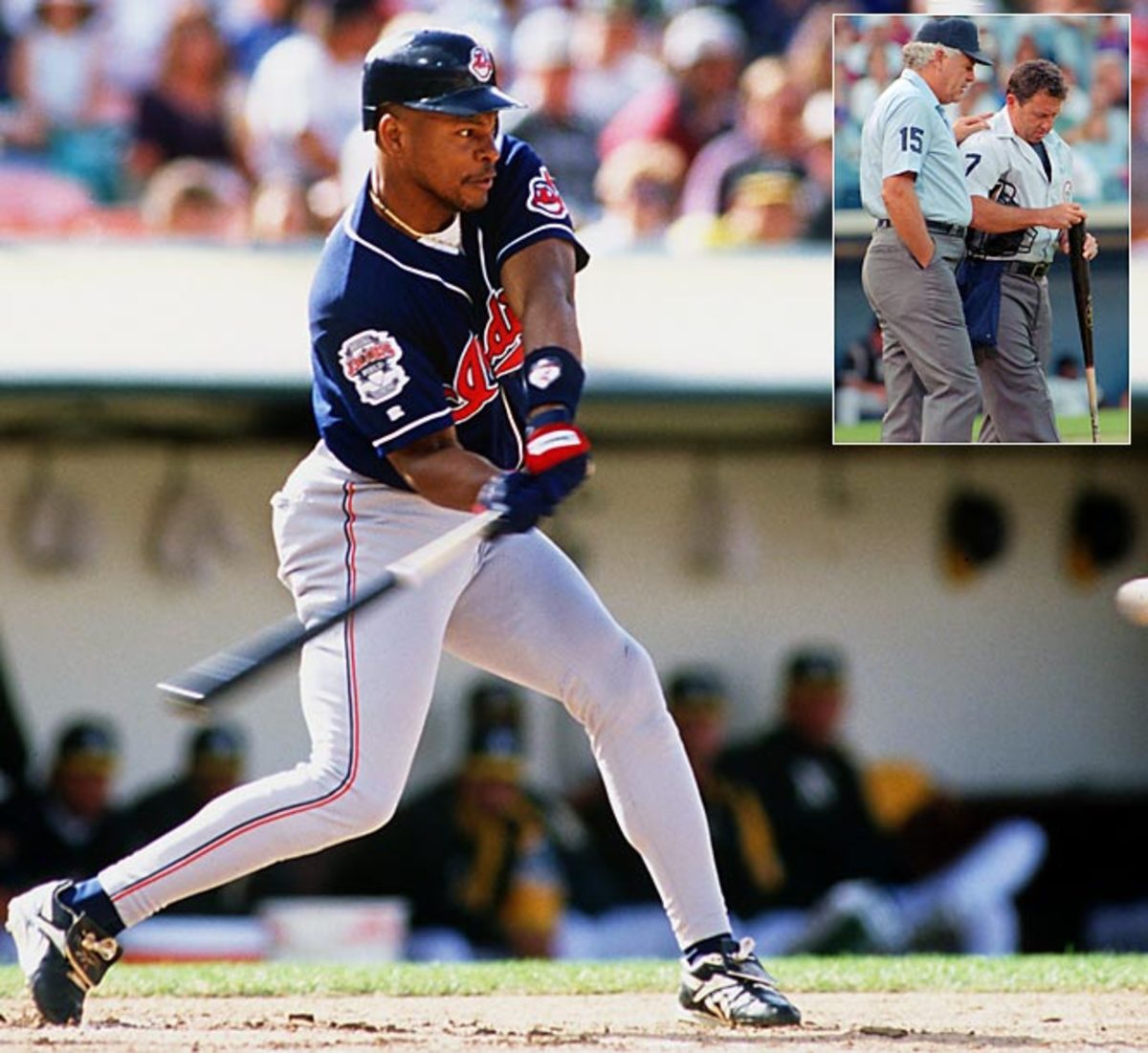
In 1994, Belle's bat was confiscated by umpire Dave Phillips after the White Sox voiced suspicion that it was corked. Belle's teammate Jason Grimsley stealthily made his way to Phillips' locker and swapped the bat with a cork-free one. The new bat had Paul Sorrento's name on it, however, and the plan failed. Belle was suspended for seven games. In his autobiography, Belle's teammate Omar Vizquel said, "the problem, of course, was that all of Albert's bats were corked."
Soviet Union-USA gold medal game, 1972
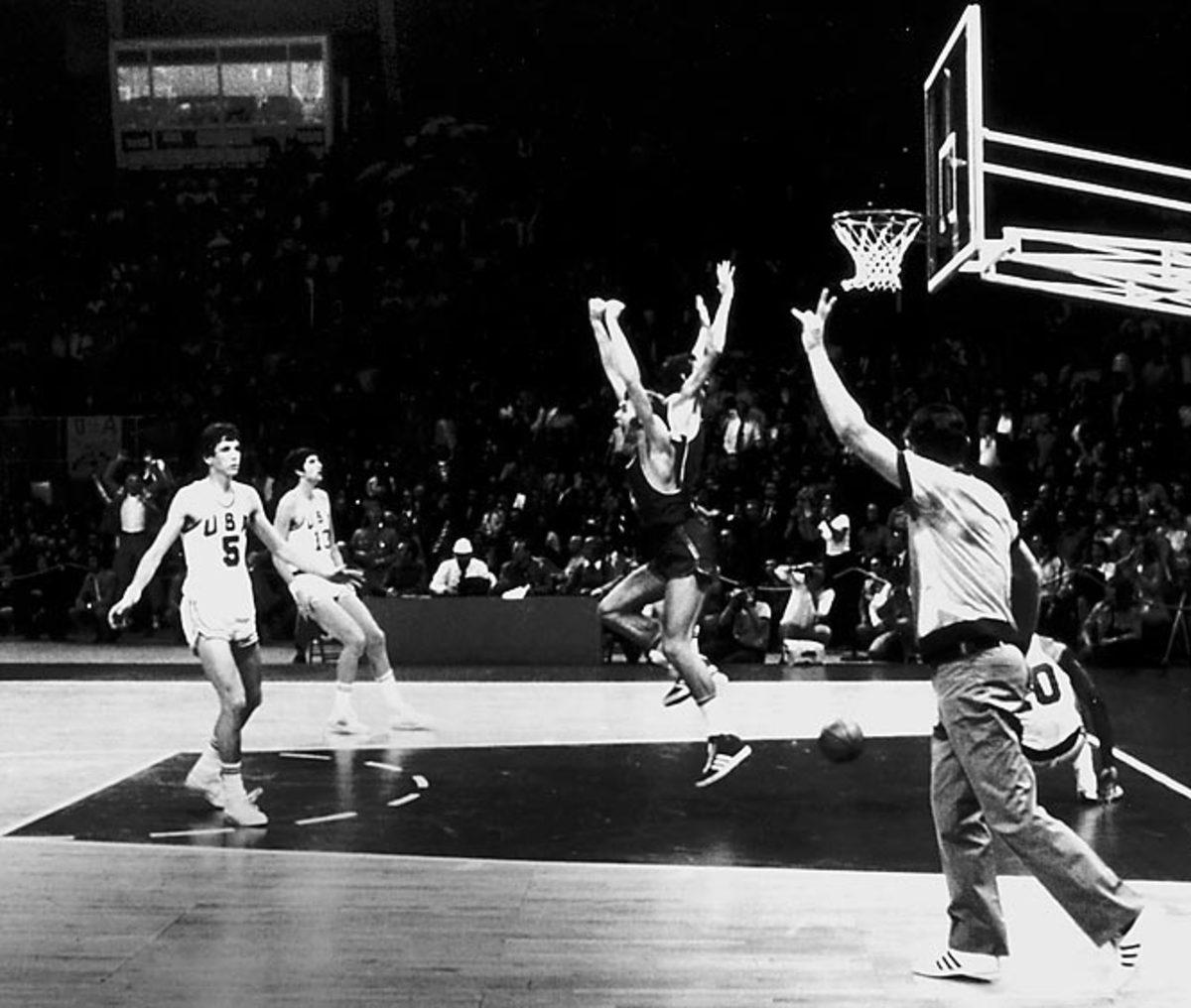
The USA team had a 63-game Olympic winning streak and likely would have won this game too if not for the British FIBA official telling the timekeeper to put three seconds back on the clock. That allowed Aleksandr Belov to rise between Americans Jim Forbes and Kevin Joyce and score the winning lay-up as time ran out for good.
Michael Waltrip's engine, 2007
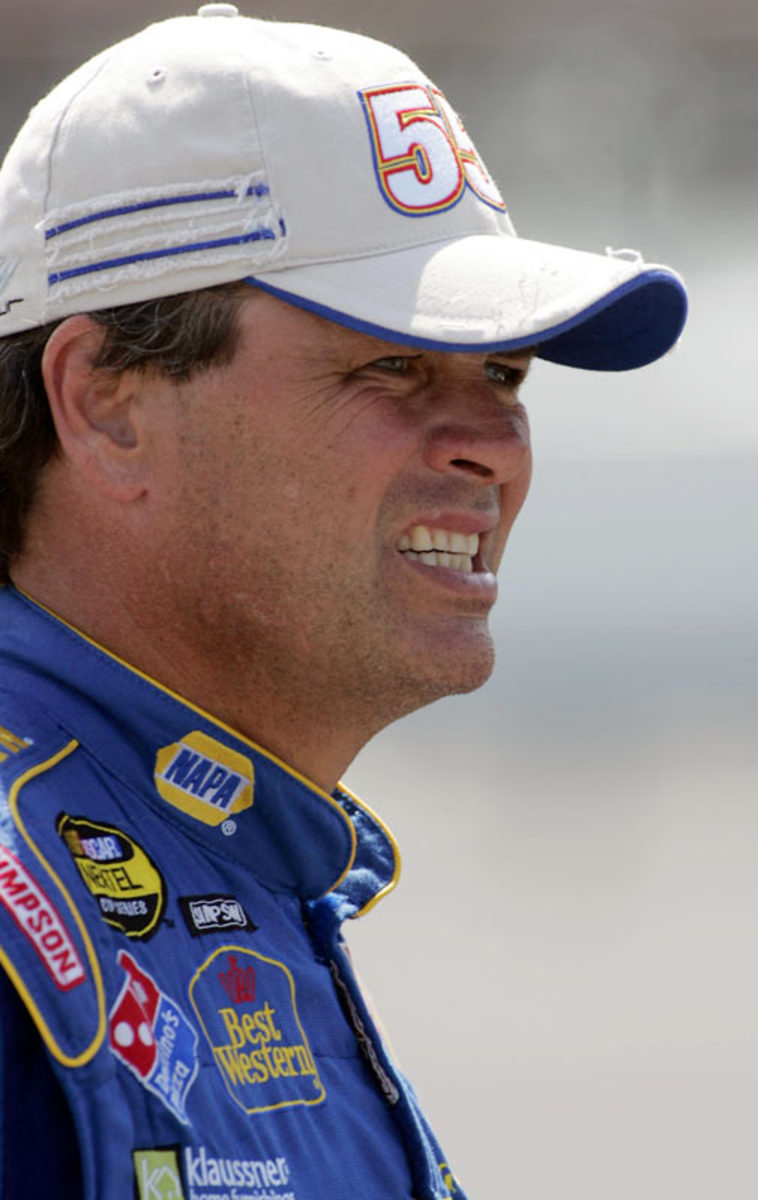
An illegal fuel-line additive was found in the engine of Michael Waltrip's car during qualifying for the 2007 Daytona 500. NASCAR suspended Waltrip's crew chief, David Hyder, and competition director, Bobby Kennedy, indefinitely. Waltrip insisted it was the action of an individual and that there had been no authorization or consent from him. He was docked 100 championship points and was penalized 100 owner points.
Park Si Hun vs. Roy Jones Jr., 1988
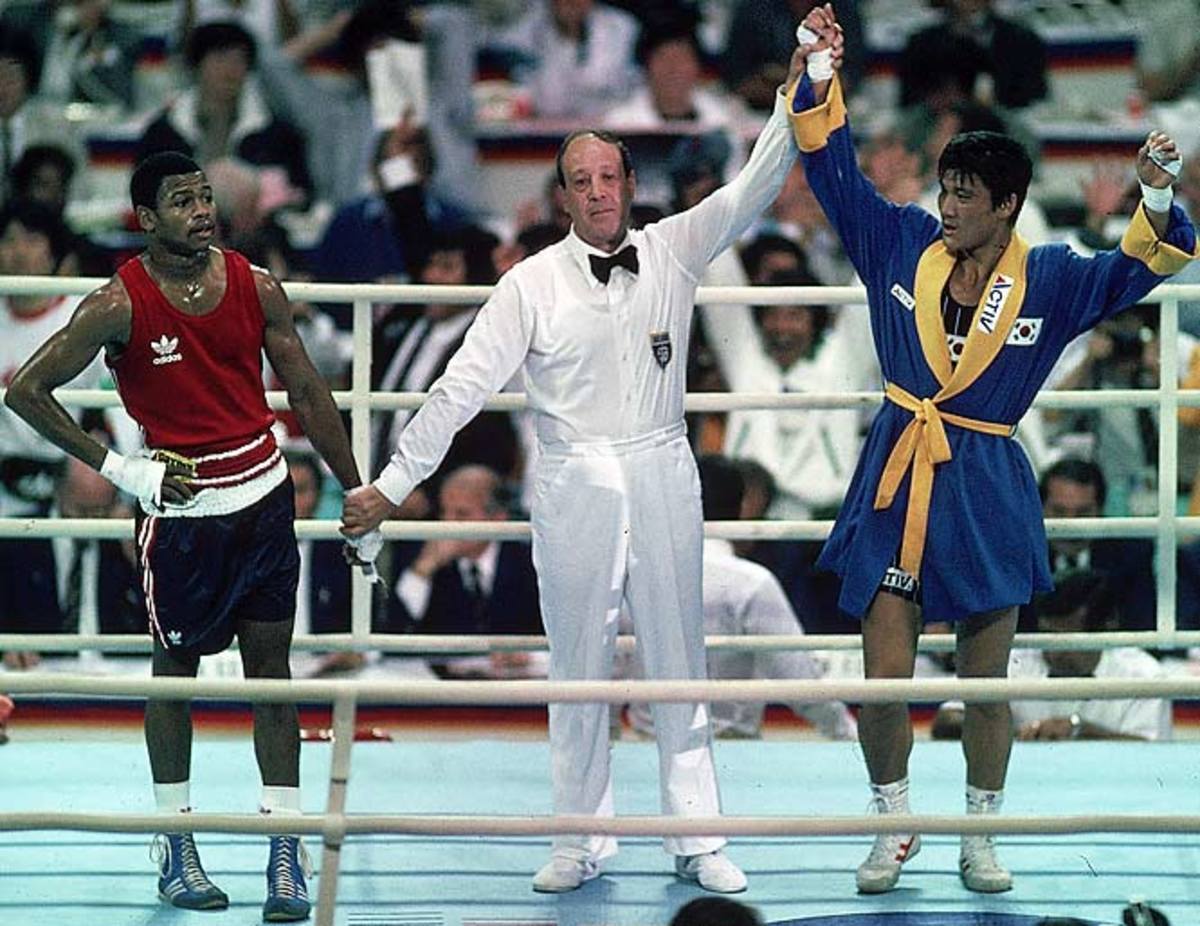
Jones Jr. dominated hometown-favorite Park in the light middleweight final at the 1988 Olympics in Seoul, but when the judges gave their decision, it was Park who received the medal by a score of 3-2. Referee Aldo Leoni told Jones after the fight, "I can't believe they're doing this to you." Years later, East German police files indicated references to payoffs in the bout.
The Bossard Family, Indians & White Sox groundskeepers, 1920s-present
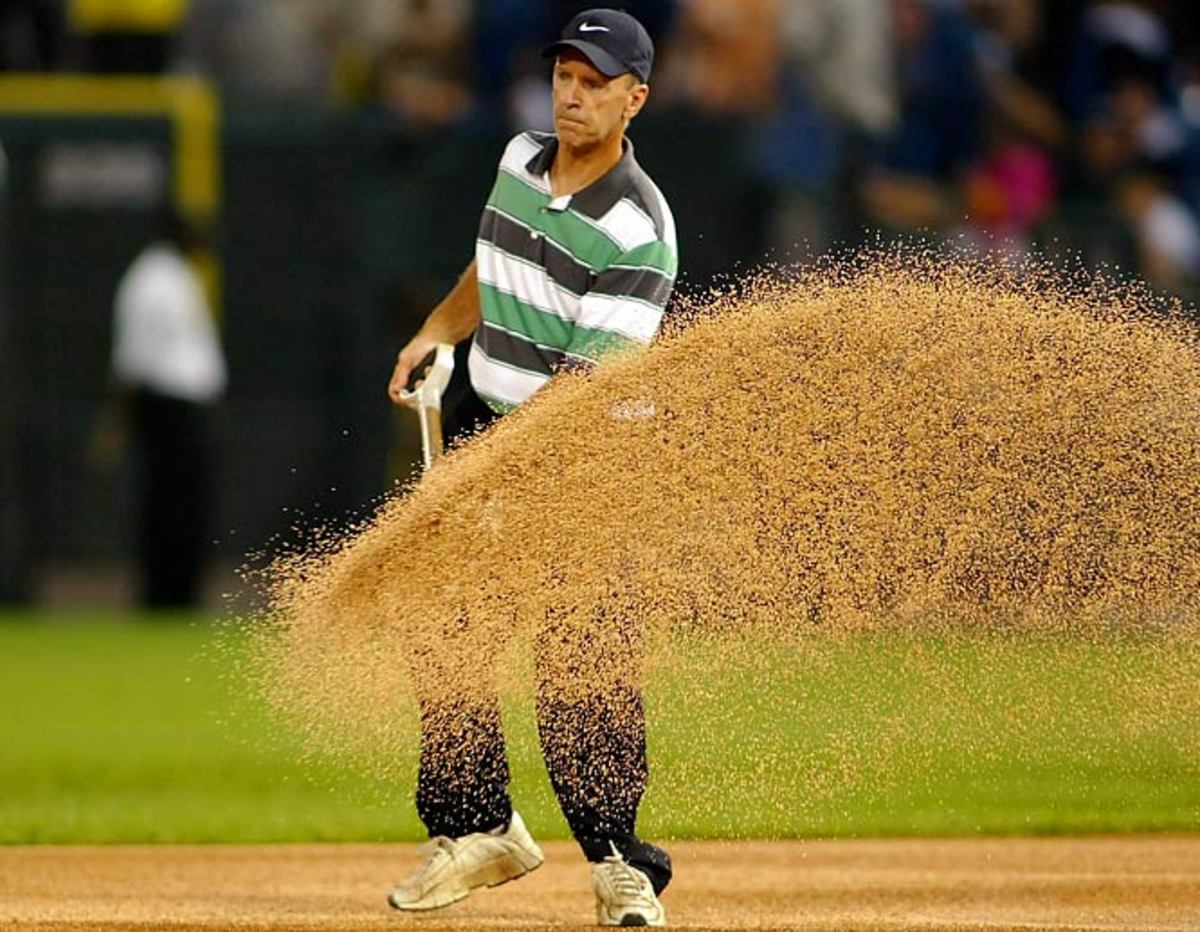
The Comiskey Park infield was once known as "Bossard's Swamp" because groundskeeper Gene Bossard kept the grass high and well-watered for Chicago's sinkerball pitchers. Bossard also soaked the area around first base when opposing base stealers came to town -- a practice his son Roger has been accused of continuing. According to Roger, Gene also created the "frozen baseball" in 1967, whereby he'd leave baseballs in a humidified basement room for 10-14 days to help the home team.
Don Sutton's ball scuffing, 1966-88
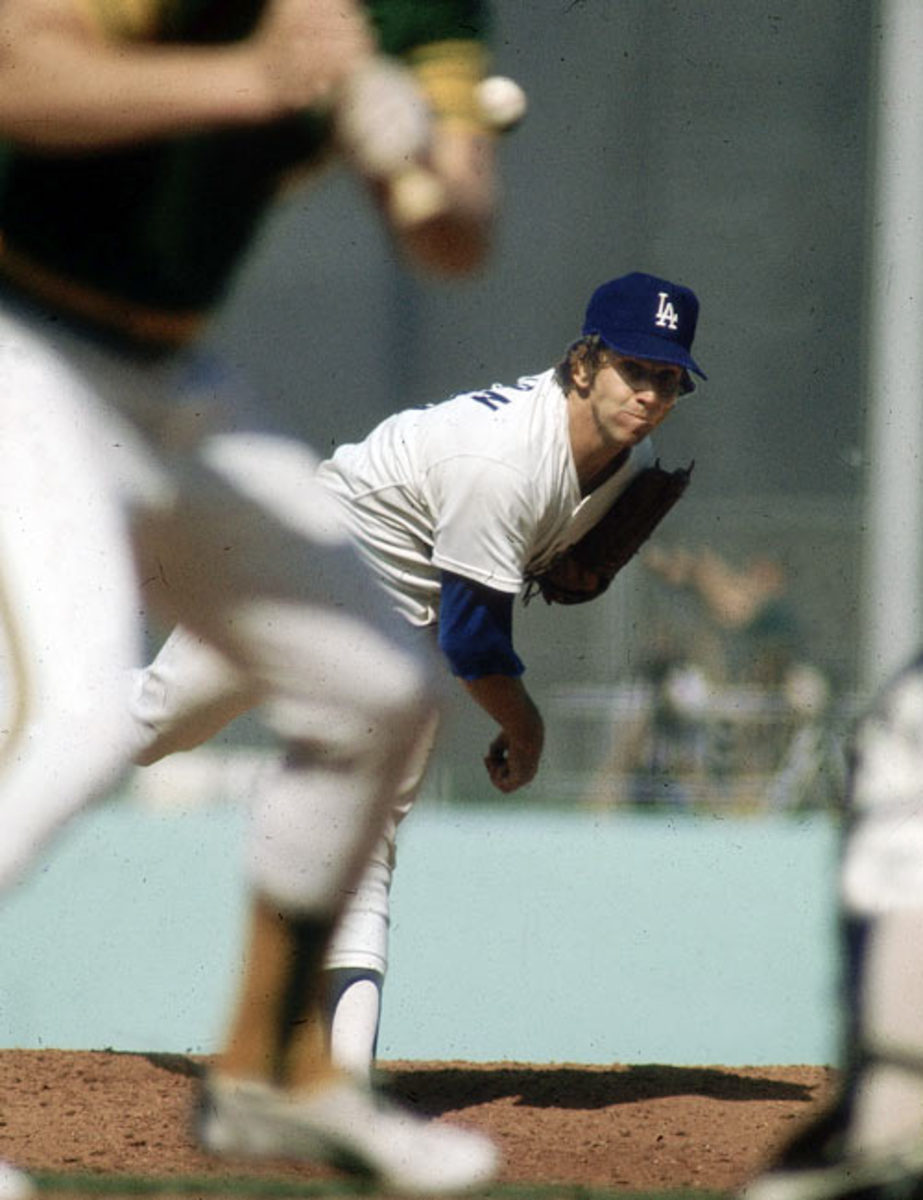
Sutton was often accused of scuffing the baseball during his Hall of Fame career. Umpires took the allegations seriously and occasionally searched him. Sutton once left a note inside his glove for the umps to discover, which read: "You're getting warm, but it's not here." In 1978 he was ejected and suspended 10 games for defacing the ball, but his penalty was lifted after he threatened to sue the National League.
Gaylord Perry's ball doctoring, 1962-1983
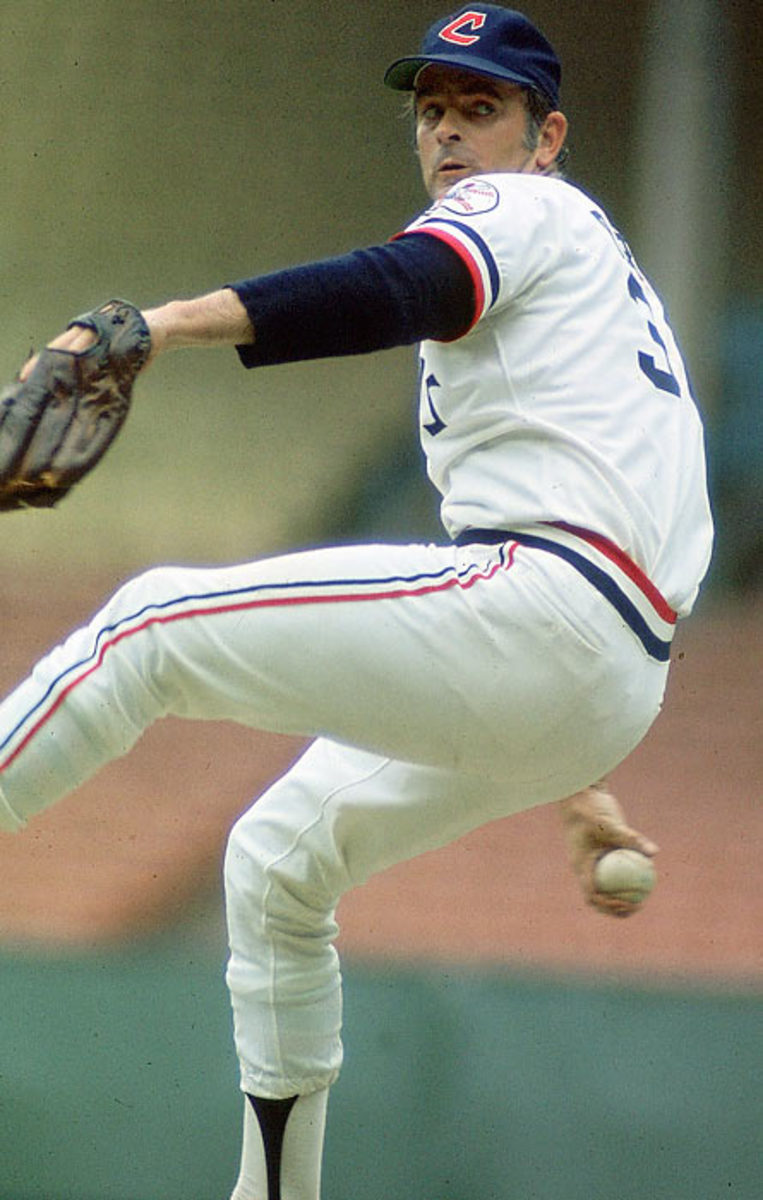
Another Hall of Famer, Perry's cheating tool of choice was Vaseline. Gene Tenace, Perry's catcher with the Padres, said the ball was sometimes so thickly coated he could not throw it back to the mound. Perry was caught and suspended for the only time in his career in 1982, but he later admitted he used his spitter his entire career.
Florida State "free shoes" scandal, 1993
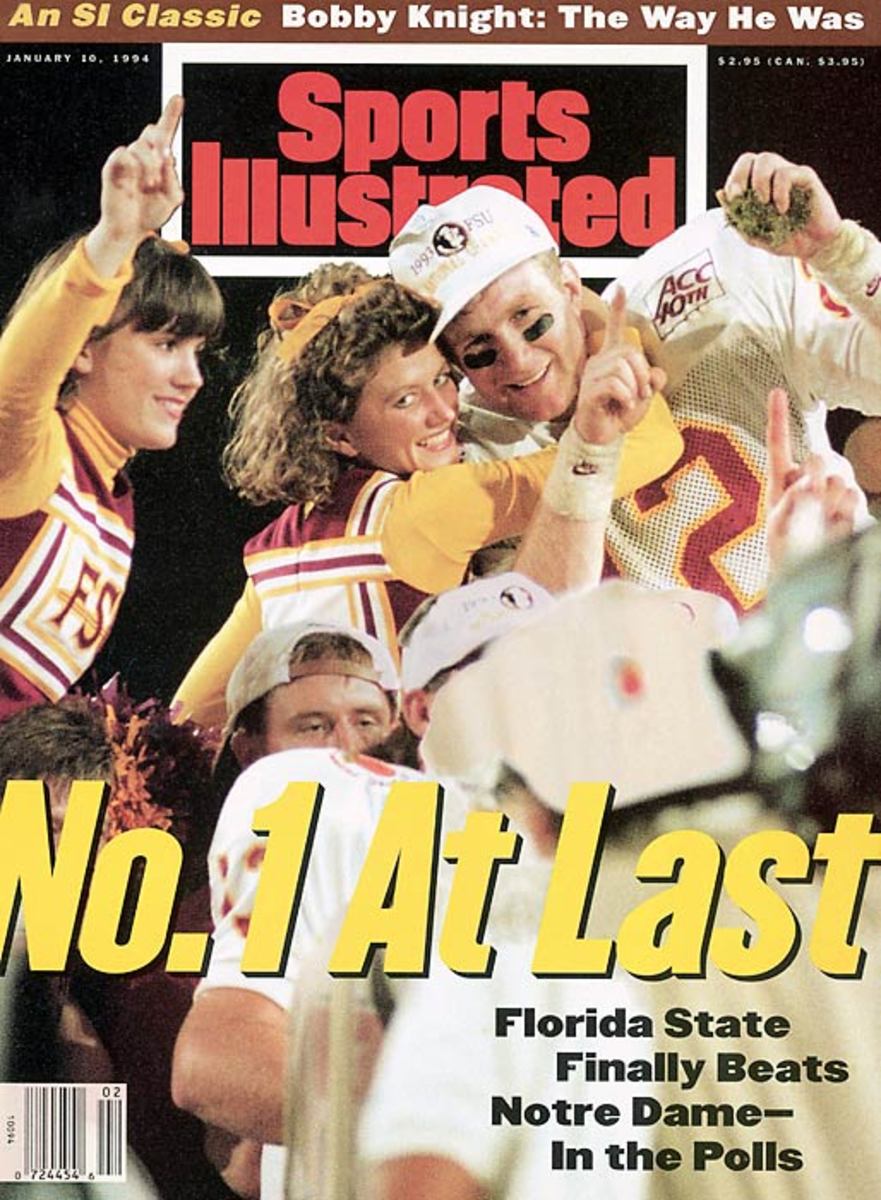
FSU earned itself the moniker "Free Shoes University" when, during its national championship year of 1993, nine players violated NCAA rules by allowing agents to bankroll a $6,000 shopping spree at a Foot Locker store. The school spent $400,000 in legal fees to investigate and clear Bobby Bowden's name.
Joe Niekro's emery board, 1987
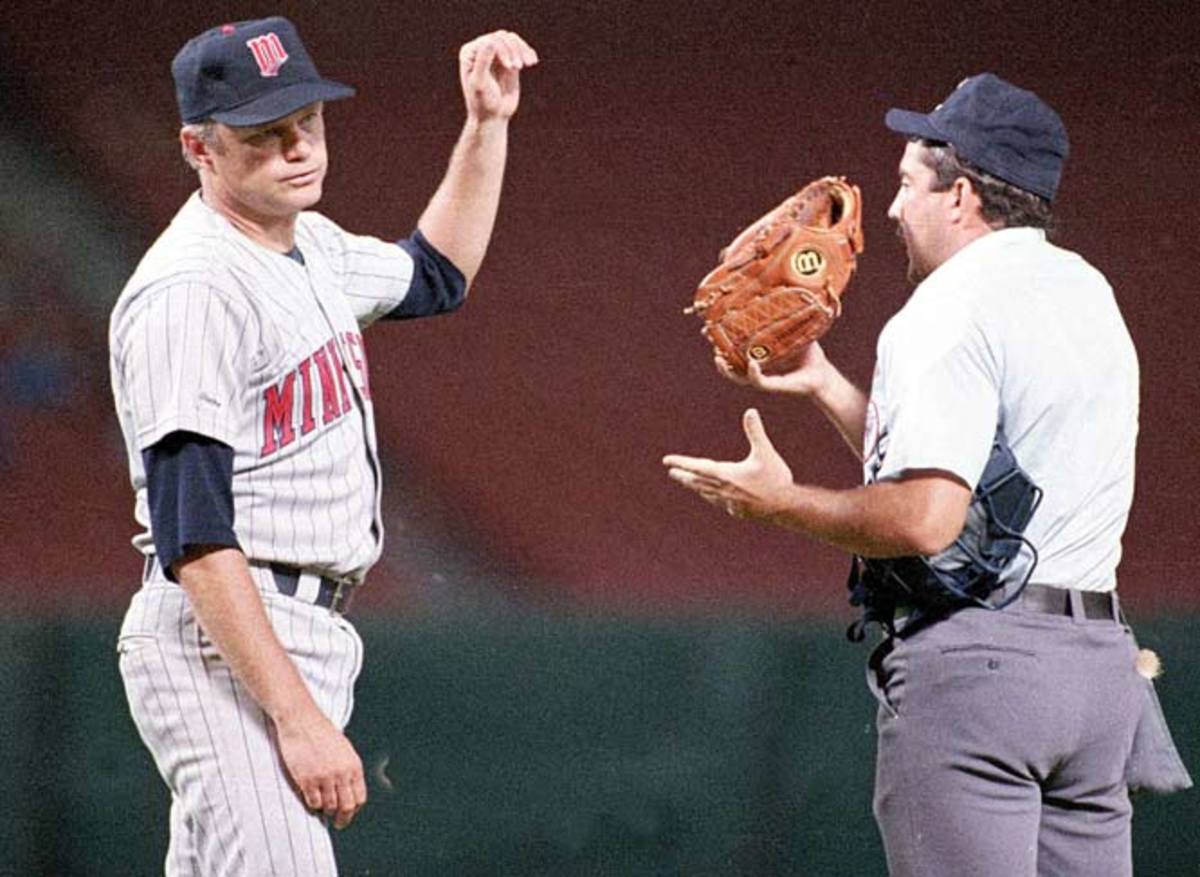
On Aug. 3, 1987, umpire Tim Tschida asked the knuckleballer to empty his pockets. Niekro did so, and an emery board and piece of sandpaper fell out. Niekro claimed he needed the emery board to file his fingernails and the sandpaper for small blisters, but he was ejected, suspended for 10 games and branded as a cheater.
Brett Hull's skate, 1999
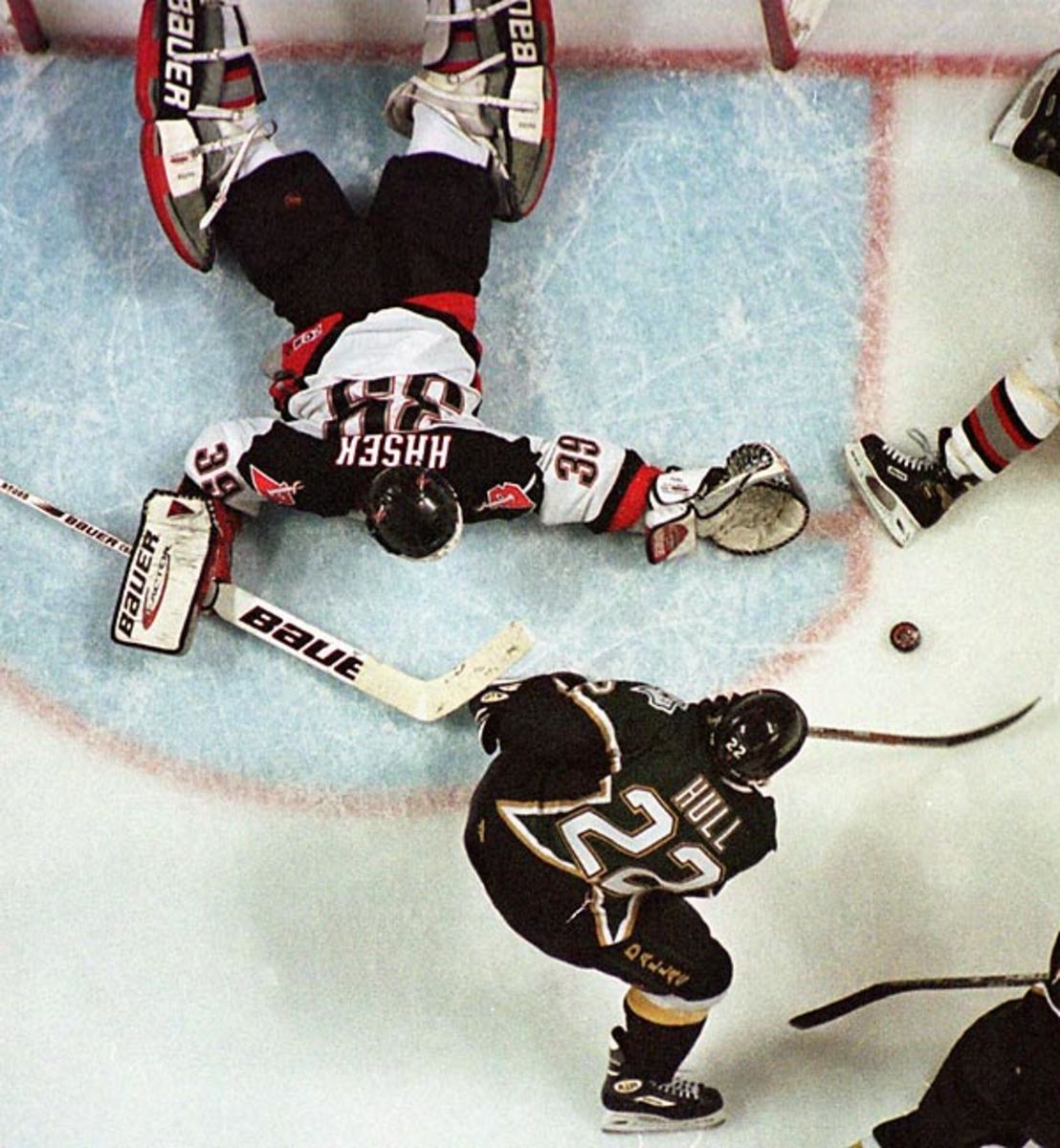
Brett Hull won the 1999 Stanley Cup for the Stars when he beat Buffalo's Dominik Hasek for the series-clinching goal in the third overtime of Game 6 of the 1999 finals. Hull also won the wrath of Sabres fans, who said his skate was in the crease before the puck. But the refs allowed the goal to stand after watching a replay and determining Hull had control of the puck.<br><br>Send comments to siwriters@simail.com.
